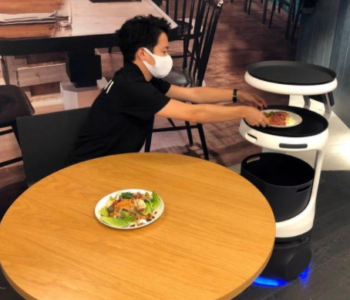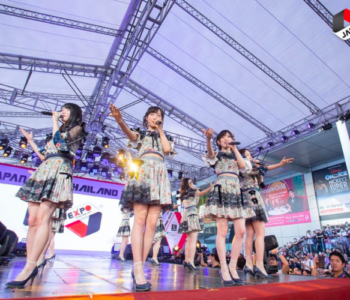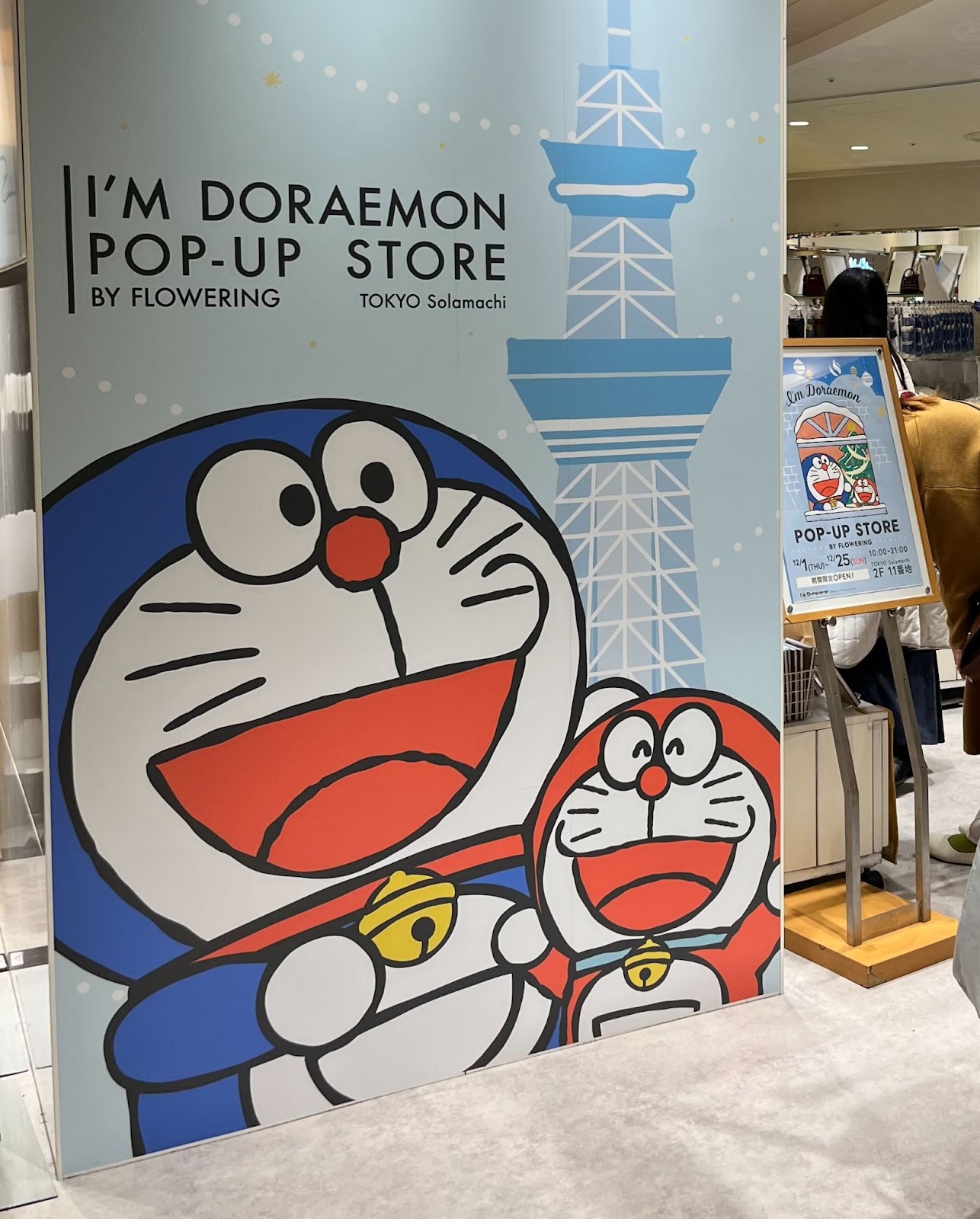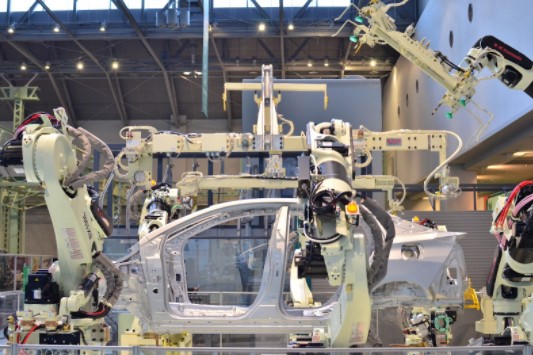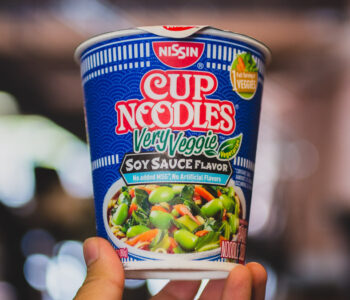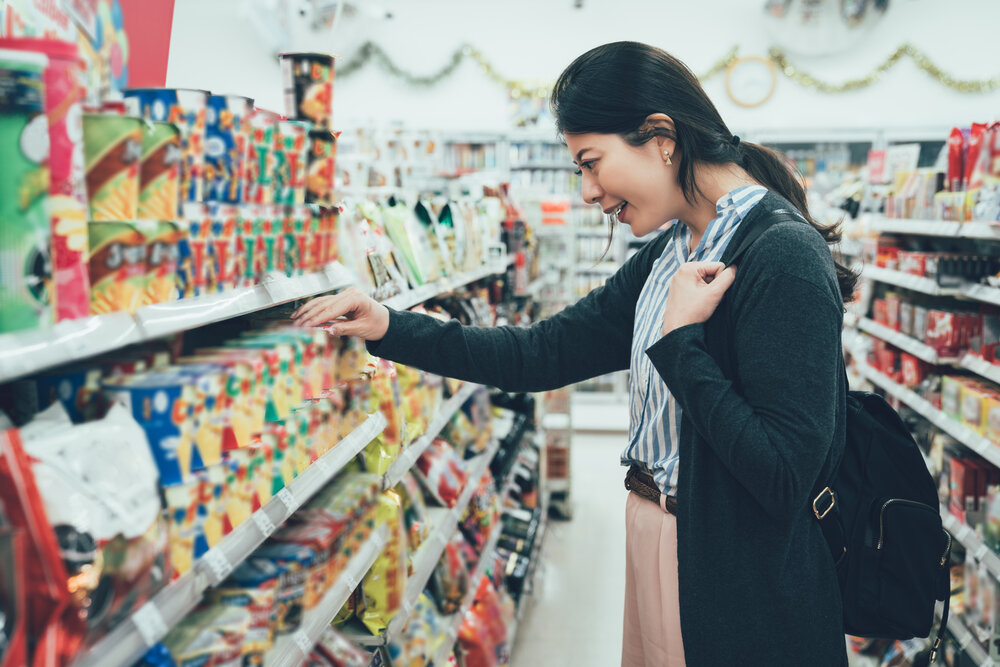 Marketing
Marketing
Convenience Stores in Japan: Ubiquitous and Under Reform
By Melissa Francis

As was once the case with Starbucks in New York, Japan’s convenience stores (or konbini ) can be found on practically every street corner in both towns and cities alike. Stocking everything from daily essentials to hot or cold lunchtime snacks, photocopying and printing services, and so much more, convenience stores remain a true staple of everyday Japanese life. But with new challenges on the horizon, in this post we take a look at how the major chains (Lawson, Family Mart, 7-Eleven) have been responding.
How are sales looking?
Pretty good, actually. At the end of 2019, there were 55,620 convenience stores in Japan, with overall sales of ¥11.16 trillion JPY (roughly $102 billion USD). If we compare this to 2018 figures, this was 1.7% higher.
Spend per customer in 2019 (at the same store each time) increased by 2.1% year-on-year, averaging a basket value of ¥632.6 JPY ($5.77 USD) per person. On the other hand, customer visits to convenience stores in Japan fell by 1.6% to 16.35 billion. This demonstrates that while fewer people are visiting, they are tending to spend more. Twenty-four 7-Eleven stores were shut, marking the most significant drop in five years. The chain’s parent company Seven & i Holdings also announced in October 2019 that it would be cutting jobs and restructuring some of its other businesses, including supermarket Ito-Yokado, in light of tough competition from e-commerce giants.
What are the general management trends?
More than 7,600 retail stores across Japan shortened their opening hours over New Year’s, many for the first time since their foundation. But this could become a reality more often than only on holidays. Due to a forecasted labour shortage of convenience store workers in the coming years, the major chains are already experimenting with shorter opening hours in some locations to save on costs.
It’s likely that by 2025, there will no longer be any convenience stores with 24-hour operations as it’s just not feasible. This, coupled with the introduction of new technologies, means that the shopping experience could change drastically in a relatively short period of time. We’re also seeing the same situation happening in South Korea.
There’s been a drive among convenience stores, particularly 7-Eleven, to reduce food waste by further discounting expiring items at the end of each day. This will entice money-conscious consumers and ease the burden on stores to manage leftovers. In 2017, Lawson discarded around 10% of their rice balls and bento boxes and accumulated 44,000 tonnes of food waste overall. The emphasis on this is due to the fact that the Food Waste Reduction bill was passed in May 2019, and convenience stores were slated as being one of the primary causes of mass food waste.
Marketing initiatives
7-Eleven
Many of 7-Eleven’s recent commercials have focused on making own-brand products feel more luxurious and indulgent. For instance, the ‘High Quality Kilimanjaro’ coffee is portrayed as being extremely rich with a deep, intense flavour—targeting customers who really enjoy a flavoursome roast. It shows several people’s reactions to drinking the coffee. There’s also an updated version of the existing 7-Eleven app which gives customers access to discount coupons, recipe ideas, articles about healthy eating and recommended weekly items.
All they need to do to use the coupons is scan the barcodes directly from their smartphone at the checkouts. In November 2019, a commercial was released that emphasised 7-Eleven’s commitment to highlighting nutritional values of their products by implementing a traffic light system which clearly shows high, medium and low levels in each product. Behind this is a bigger commitment to the ‘safety, peace of mind, and health’ of their customers, delivering a ‘healthier deliciousness’. The commercial’s slogan hyouji wa, ketsui desu (transparency shows our determination) cements this commitment further.
Lawson
With the recent streaming of 21 Studio Ghibli films on Netflix, it seems fitting to mention this campaign. The world-famous animation studio worked with Lawson on their recent 15-second commercial. Far from Ghibli’s usual, distinctive style, the animation in this case is flowy and rough, but shows various people enjoying their time spent at a Lawson convenience store. Unlike 7-Eleven, Lawson’s adverts over the past year have tended to focus more on human interactions as well as promoting fresh, natural produce.
In a bid to combat food waste, a campaign was run during summer 2019 called ‘Another Choice’ and featured several commercials explaining how customers could, instead of opting for their usual choice, select products with a certain sticker on them, which would give them further discounts between 4-11pm. The brand also widely features young children in its commercials, which helps to lend a sense of innocence and familiarity.
Family Mart
While 7-Eleven’s recent coffee commercial highlighted the indulgent side, Family Mart took a different approach by marketing its in-store coffee station in terms of the variety offered. Blends could be picked according to one’s mood and time of day. Another commercial, aired in September 2019, part of the Okasan Shokudou (Mother’s Restaurant) shows an upset woman crying about something that’s gone wrong in her life. Seeing that she needs some support, the chef whips up a ready meal from Family Mart’s Okasan Shokudou range of frozen offerings and serves it to her. She cheers up almost immediately, expresses how delicious the dish is and asks for seconds. This works to highlight the point at which ‘convenience’ and ‘home-cooked’ meld together into a comforting food choice.
Technological innovations
In response to the growing concerns over labour shortages, a number of Japanese companies have been teaming up with the convenience store chains to implement tech solutions that can improve the overall efficiency and speed of the shopping experience, negating the need for human intervention.
Payment & Checkout
Convenience stores in Japan are often first to trial new payment technologies. Since they’re used on such a regular basis and customers tend not to purchase large quantities of items, it’s helpful to see how certain technologies are being adopted. Digital payments at convenience stores jumped 60% after the latest round of consumption tax hikes in October 2019, with PayPay being one of the most popular choices.
Five of Japan’s foremost convenience store chains, including Family Mart and 7-Eleven will have self-service checkouts in place at all shops by 2025. This is largely necessary due to the decrease in manual labour. Electronics manufacturer NEC announced that they would set up their Smart Store in February 2020 which features cameras and image recognition technology to verify purchases made by consumers. Two of NEC’s primary biometric and facial recognition technologies, Bio-IDiom and NeoFace, are employed in order to achieve a ‘checkout-less’ experience.
NTT Data is also involved in a similar unmanned store project which began in September 2019. The aim is to promote the practical use of stores without checkouts, in the same vein as Amazon Go in the US. All the customer has to do is download a dedicated app, select their preferred payment method and grab the items they want from the store. Once they leave, the cost will be automatically settled without even needing to scan anything. The company is planning to introduce 1,000 of these stores across Japan by FY 2022.
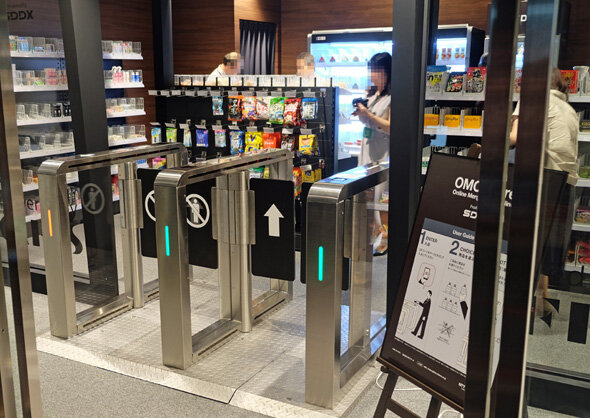
Lawson has introduced a new automated system to ensure that even when staff aren’t present, customers can still shop at stores. The company ran a trial at a Yokohama branch from August 2019.
The premise is that there will be no physical workers in stores after midnight, saving wages for the five hours until 5am but ensuring that operations are able to continue as normal throughout the night instead of shortening the opening hours. During this time, the number of customers entering the stores is significantly lower than usual, so they would be required to obtain a QR code to gain access, and once they’re ready to pay, they proceed to the ‘zero-second wait’ self-service checkouts, which accept both digital payment and cash.
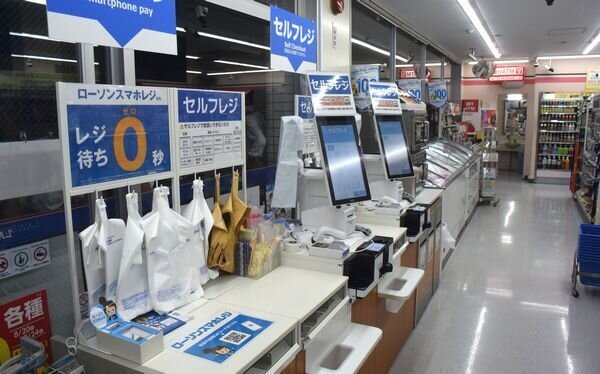
Japan Rail East (JR East) is collaborating with IT company Signpost Corporation to set up the TOUCH TO GO self-service offering, due to commence operations from Spring 2020. at a new station opening on Tokyo’s Yamanote Line. When a customer enters, a camera will recognize and follow the customer. Furthermore, if the customer who enters picks up a product, the camera knows. If they stand in the payment zone, it knows that they have to pay for that product. The gate does not open until the transaction is complete, so it’s technically impossible to shoplift.
Signpost Corporation were part of a startup programme run by JR East, and has developed checkout solutions that combine AI and image recognition technology for optimum payment security.
Loyalty
Telecoms giant KDDI is collaborating with Lawson convenience stores to integrate next generation services expected by the end of 2020. An agreement was signed on 16th December 2019. KDDI will also acquire 2.11% of Lawson’s outstanding shares. Other companies involved in the collaboration are Mitsubishi Corporation and Loyalty Marketing (LM). Existing KDDI and LM members will be assimilated into Lawson’s ‘Ponta’ loyalty scheme, meaning that the convenience store chain will have access to approximately 100 million consumers (22 million of which are mobile accounts).
I-kasa, the umbrella-sharing startup
Convenience stores in Japan tend to have stands for customers to leave their umbrellas while they shop. Still, these are prone to theft and many umbrellas end up turned inside-out on the side of the streets in cities like Tokyo after a strong wind or storm renders them useless. So it makes sense that there would be a service to try and help combat this. The i-kasa IoT umbrella sharing service was developed by Nature Innovation Group and ran a trial from 18th December at a couple of stores in Tokyo to begin with.
The service allows users to scan a QR code printed on the umbrellas and borrow them for an unlimited number of times throughout any given day for just 70 yen. The total cost is capped at 420 yen per month, so essentially the umbrellas can be used any number of times very cheaply. There is a strong cashless incentive here as well, since the startup is associated with LINE Pay. To promote the use of the service, LINE Pay ran a special offer in Fukuoka City for a limited period in May 2019, giving users the chance to rent umbrellas for 1 JPY per day if they paid with LINE Pay.
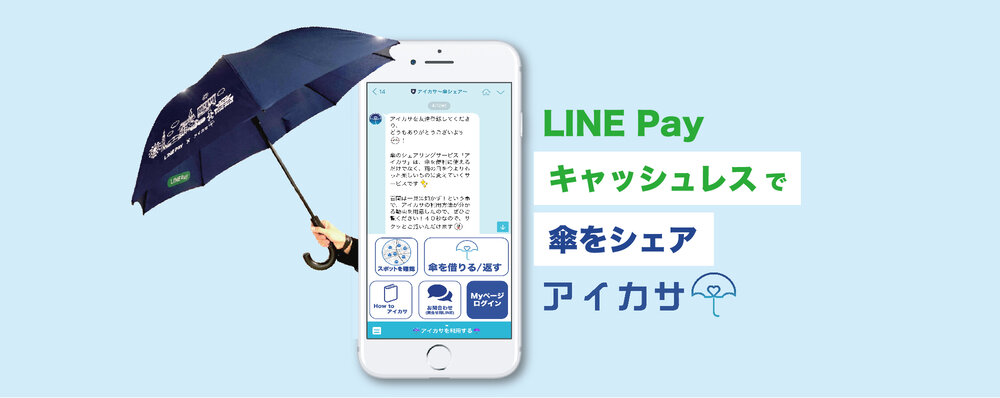
What’s next for convenience stores in Japan?
Despite the progress that has been made, it’s clear that convenience stores still have some way to go in order to meet their business and corporate social responsibility targets—as well as keeping their customers happy. It’s worth keeping an eye on how the major Japanese retailers balance the very real issue of labour shortages with the rise of cutting-edge technology. What impact will this have on Japanese society as a whole?
With convenience stores in Japan having such a significant presence, it’s unlikely that they’ll go down without a fight. We’re sure they’ll always be thinking of fresh solutions to entice customers into coming back for more.
It stands to reason that payment and checkout solutions are at the forefront of convenience store brand’s minds, with that being significant in terms of automation. This is, however, representative of just one sector of the broader retail landscape in Japan. There’s so much more to consider here, such as what the key e-commerce giants like Mercari, Rakuten and Amazon are doing to lure consumers into making more online purchases.
We talk about cashless trends in Japan in this article. For more information, take a look at our analysis of the Japanese electronic payments industry here.
